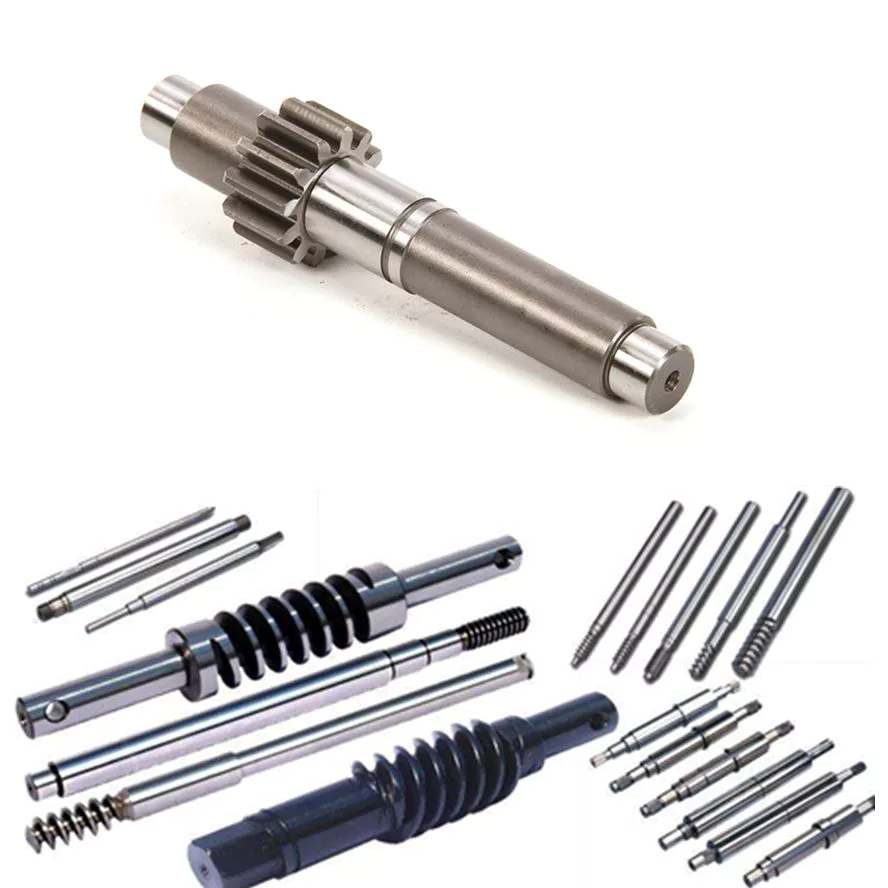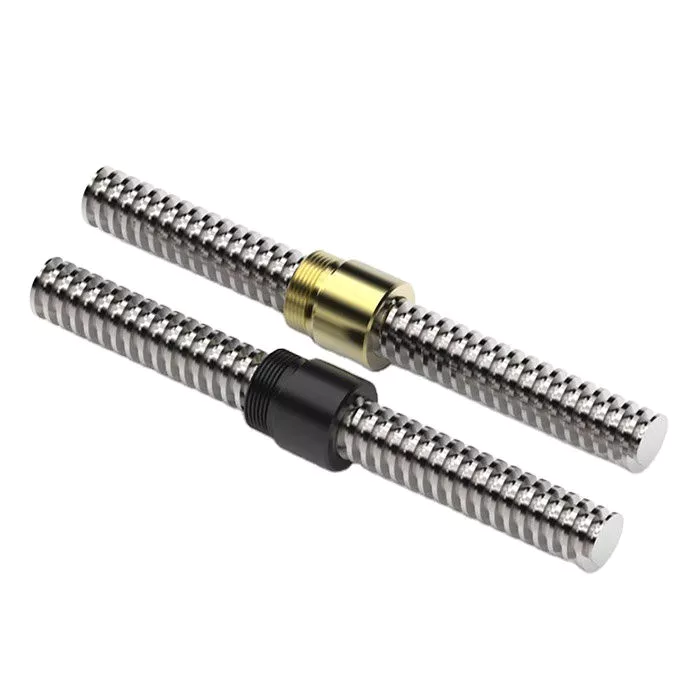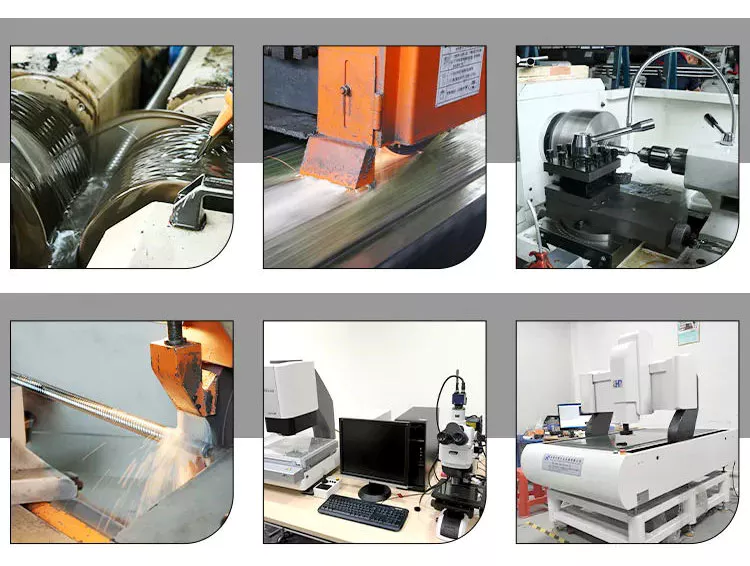Product Description
Product Description
OEM.ODM is available Greencate is acceptable for us
We can design drawings according to your samples, or make samples according to your drawings.
We need more detail as follow with many thanks. This will allow us to give you an accurate quotation if you need customized.
• Product:
• Material:
• Class grade:
• Order Quantity:
• Surface treatment:
• When do you need it by?
• Where to Shipping (Country with postal code please) :
• Measure: Inside Diameter/Outside Diameter/Thickness/Length:
• Email your drawing ( jpg, png or pdf, word) with minimum 300 dpi resolution for good clarity.
|
Product Name |
SPCIAL SCREW From DIN 7971 |
|
Material |
SUS304 |
|
Color |
polish,self-color |
|
Standard |
DIN GB ISO JIS BA ANSI |
|
Finished |
polish ,passivation |
Detailed Photos
Product Parameters
| Screw Thread | ST2.2 | ST2.9 | ST3.5 | (ST3.9) | ST4.2 | ST4.8 | ST5.5 | ST6.3 | ||||
| d | ||||||||||||
| P | Pitch | 0.8 | 1.1 | 1.3 | 1.3 | 1.4 | 1.6 | 1.8 | 1.8 | |||
| a | max | 0.8 | 1.1 | 1.3 | 1.3 | 1.4 | 1.6 | 1.8 | 1.8 | |||
| dk | max=nominal size | 4.2 | 5.6 | 6.9 | 7.5 | 8.2 | 9.5 | 10.8 | 12.5 | |||
| min | 3.9 | 5.3 | 6.54 | 7.14 | 7.84 | 9.14 | 10.37 | 12.07 | ||||
| k | max=nominal size | 1.35 | 1.75 | 2.1 | 2.25 | 2.45 | 2.8 | 3.2 | 3.65 | |||
| min | 1.15 | 1.5 | 1.85 | 2 | 2.15 | 2.5 | 2.85 | 3.3 | ||||
| n | Nominal Size | 0.6 | 0.8 | 1 | 1 | 1.2 | 1.2 | 1.6 | 1.6 | |||
| min | 0.66 | 0.86 | 1.06 | 1.06 | 1.26 | 1.26 | 1.66 | 1.66 | ||||
| max | 0.8 | 1 | 1.2 | 1.2 | 1.51 | 1.51 | 1.91 | 1.91 | ||||
| t | min | 0.55 | 0.75 | 0.95 | 1.05 | 1.15 | 1.35 | 1.55 | 1.8 | |||
| max | 0.8 | 1 | 1.25 | 1.4 | 1.5 | 1.7 | 1.95 | 2.2 | ||||
| y | max | Type C | 2 | 2.6 | 3.2 | 3.5 | 3.7 | 4.3 | 5 | 6 | ||
| Type F | 1.6 | 2.1 | 2.5 | 2.7 | 2.8 | 3.2 | 3.6 | 3.6 | ||||
| Weight of per 1000 steel products(≈kg) | – | – | – | – | – | – | – | –
|
||||
Packaging & Shipping
Installation Instructions
Certifications
Company Profile
ZheJiang Gentleman hardware Co., Ltd. always adhere to the principle of leading technology, quality first, customer first, and grow together with our partners around the world. Besides DIN standard products we supply also ex stock according to ISO, UNC, UNF, BSW (whit worth), BSF, ASTM and ANSI standards. Above all, our well known specialty is the delivery of deviating sizes and materials to sample or drawing. All Metal is known in the market as the specialist for special fasteners.
Hexagon head bolts and socket cap screws are also standard available in the higher grades 10.9 and 12.9. The plating company guarantees excellent finished products: electrolytic (blue, yellow or black passivized) and hot dip galvanizing are the most common standard surface treatments. But also e.g. The best surface treatment of Greencate may be applied.
Besides our focus on the machine and equipment construction we deliver to a great variety of industries like shipbuilding, petrochemical industry, furniture and electronically manufacturing. We can produce quickly in relatively small series for our Cooperation partner worldwide.
Our international trade company is located in ZheJiang city which is very close to the ZheJiang seaport and airport, can save a lot of transportation and time costs. And our Technical Engineer have 34 years’ experience in fasteners, these are how we keep superior quality and competitive offers for global valued customers.
We have good reputation in fasteners field with our long business customers because we always adhere to the principle of leading technology, quality first, customer first, and grow together with our partners around the world.
And i have been in the import and export industry for more than 15 years then can save costs from transportation, products, etc., while controlling product quality, so that you can achieve your company target.
FAQ
Q:Are you a manufacturing company or trading company?
A: Our factory are specialized in manufacturing fasteners more than 40 years and our sales company have exporting experience for more than 16 years.
Q: Wonder if you accept small orders?
A: Do not worry. Please feel free to contact us, in order to give our clients more convenience, we accept small order.
Q: How can I get a sample to check your quality?
A: After price is confirmed, you can require samples to check our quality. Free for stock samples, but freight collect. For sample making, we will charge a sample fee. Sample fee will be confirmed according to the products’ craftwork.
Q: How can I customize my products?
A: Attach your drawings with details. (Surface, treatment, material, quantity and special requirements etc.) . And we can print your logo according to your request and Brand Authorization Letter
Q: How long is your delivery time?
A: Generally it is 5-10 days if the goods are in stock. Or it is 15-20 days if the goods are not in stock, it is according to quantity.
Q: What is your payment term?
A: Payment=2000USD, 30%-70% T/T in advance (depending on different situations.), balance before shipment.
Q: What’s your packing?
A: Our Normal packing is bulking in Cartons, 20-25kgs/carton, 36cartons/ pallet. We also can pack products according to your requirement.
Q: Do you have after-sales service?
A: Certainly, you can contact us at any time. And we are very confident in our products, we pack them very well to make sure the goods in well protection to avoid any subsequent trouble regarding quality issue, we suggest you check the goods once you receive them. If there is any transport damaged or quality issue, don’t forget take the detail pictures and contact us as soon as possible, we will properly handle it to make sure your loss to reduce to the smallest. if it is our problem we will responsible for it.
Please feel free to contact us for detailed information.
Screws and Screw Shafts
A screw is a mechanical device that holds objects together. Screws are usually forged or machined. They are also used in screw jacks and press-fitted vises. Their self-locking properties make them a popular choice in many different industries. Here are some of the benefits of screws and how they work. Also read about their self-locking properties. The following information will help you choose the right screw for your application.
Machined screw shaft
A machined screw shaft can be made of various materials, depending on the application. Screw shafts can be made from stainless steel, brass, bronze, titanium, or iron. Most manufacturers use high-precision CNC machines or lathes to manufacture these products. These products come in many sizes and shapes, and they have varying applications. Different materials are used for different sizes and shapes. Here are some examples of what you can use these screws for:
Screws are widely used in many applications. One of the most common uses is in holding objects together. This type of fastener is used in screw jacks, vises, and screw presses. The thread pitch of a screw can vary. Generally, a smaller pitch results in greater mechanical advantage. Hence, a machined screw shaft should be sized appropriately. This ensures that your product will last for a long time.
A machined screw shaft should be compatible with various threading systems. In general, the ASME system is used for threaded parts. The threaded hole occupies most of the shaft. The thread of the bolt occupy either part of the shaft, or the entire one. There are also alternatives to bolts, including riveting, rolling pins, and pinned shafts. These alternatives are not widely used today, but they are useful for certain niche applications.
If you are using a ball screw, you can choose to anneal the screw shaft. To anneal the screw shaft, use a water-soaked rag as a heat barrier. You can choose from 2 different options, depending on your application. One option is to cover the screw shaft with a dust-proof enclosure. Alternatively, you can install a protective heat barrier over the screw shaft. You can also choose to cover the screw shaft with a dust-proof machine.
If you need a smaller size, you can choose a smaller screw. It may be smaller than a quarter of an inch, but it may still be compatible with another part. The smaller ones, however, will often have a corresponding mating part. These parts are typically denominated by their ANSI numerical size designation, which does not indicate threads-per-inch. There is an industry standard for screw sizes that is a little easier to understand.
Ball screw nut
When choosing a Ball screw nut for a screw shaft, it is important to consider the critical speed of the machine. This value excites the natural frequency of a screw and determines how fast it can be turned. In other words, it varies with the screw diameter and unsupported length. It also depends on the screw shaft’s diameter and end fixity. Depending on the application, the nut can be run at a maximum speed of about 80% of its theoretical critical speed.
The inner return of a ball nut is a cross-over deflector that forces the balls to climb over the crest of the screw. In 1 revolution of the screw, a ball will cross over the nut crest to return to the screw. Similarly, the outer circuit is a circular shape. Both flanges have 1 contact point on the ball shaft, and the nut is connected to the screw shaft by a screw.
The accuracy of ball screws depends on several factors, including the manufacturing precision of the ball grooves, the compactness of the assembly, and the set-up precision of the nut. Depending on the application, the lead accuracy of a ball screw nut may vary significantly. To improve lead accuracy, preloading, and lubrication are important. Ewellix ball screw assembly specialists can help you determine the best option for your application.
A ball screw nut should be preloaded prior to installation in order to achieve the expected service life. The smallest amount of preload required can reduce a ball screw’s calculated life by as much as 90 percent. Using a lubricant of a standard grade is recommended. Some lubricants contain additives. Using grease or oil in place of oil can prolong the life of the screw.
A ball screw nut is a type of threaded nut that is used in a number of different applications. It works similar to a ball bearing in that it contains hardened steel balls that move along a series of inclined races. When choosing a ball screw nut, engineers should consider the following factors: speed, life span, mounting, and lubrication. In addition, there are other considerations, such as the environment in which the screw is used.
Self-locking property of screw shaft
A self-locking screw is 1 that is capable of rotating without the use of a lock washer or bolt. This property is dependent on a number of factors, but 1 of them is the pitch angle of the thread. A screw with a small pitch angle is less likely to self-lock, while a large pitch angle is more likely to spontaneously rotate. The limiting angle of a self-locking thread can be calculated by calculating the torque Mkdw at which the screw is first released.
The pitch angle of the screw’s threads and its coefficient of friction determine the self-locking function of the screw. Other factors that affect its self-locking function include environmental conditions, high or low temperature, and vibration. Self-locking screws are often used in single-line applications and are limited by the size of their pitch. Therefore, the self-locking property of the screw shaft depends on the specific application.
The self-locking feature of a screw is an important factor. If a screw is not in a state of motion, it can be a dangerous or unusable machine. The self-locking property of a screw is critical in many applications, from corkscrews to threaded pipe joints. Screws are also used as power linkages, although their use is rarely necessary for high-power operations. In the archimedes’ screw, for example, the blades of the screw rotate around an axis. A screw conveyor uses a rotating helical chamber to move materials. A micrometer uses a precision-calibrated screw to measure length.
Self-locking screws are commonly used in lead screw technology. Their pitch and coefficient of friction are important factors in determining the self-locking property of screws. This property is advantageous in many applications because it eliminates the need for a costly brake. Its self-locking property means that the screw will be secure without requiring a special kind of force or torque. There are many other factors that contribute to the self-locking property of a screw, but this is the most common factor.
Screws with right-hand threads have threads that angle up to the right. The opposite is true for left-hand screws. While turning a screw counter-clockwise will loosen it, a right-handed person will use a right-handed thumb-up to turn it. Similarly, a left-handed person will use their thumb to turn a screw counter-clockwise. And vice versa.
Materials used to manufacture screw shaft
Many materials are commonly used to manufacture screw shafts. The most common are steel, stainless steel, brass, bronze, and titanium. These materials have advantages and disadvantages that make them good candidates for screw production. Some screw types are also made of copper to fight corrosion and ensure durability over time. Other materials include nylon, Teflon, and aluminum. Brass screws are lightweight and have aesthetic appeal. The choice of material for a screw shaft depends on the use it will be made for.
Shafts are typically produced using 3 steps. Screws are manufactured from large coils, wire, or round bar stock. After these are produced, the blanks are cut to the appropriate length and cold headed. This cold working process pressudes features into the screw head. More complicated screw shapes may require 2 heading processes to achieve the desired shape. The process is very precise and accurate, so it is an ideal choice for screw manufacturing.
The type of material used to manufacture a screw shaft is crucial for the function it will serve. The type of material chosen will depend on where the screw is being used. If the screw is for an indoor project, you can opt for a cheaper, low-tech screw. But if the screw is for an outdoor project, you’ll need to use a specific type of screw. This is because outdoor screws will be exposed to humidity and temperature changes. Some screws may even be coated with a protective coating to protect them from the elements.
Screws can also be self-threading and self-tapping. The self-threading or self-tapping screw creates a complementary helix within the material. Other screws are made with a thread which cuts into the material it fastens. Other types of screws create a helical groove on softer material to provide compression. The most common uses of a screw include holding 2 components together.
There are many types of bolts available. Some are more expensive than others, but they are generally more resistant to corrosion. They can also be made from stainless steel or aluminum. But they require high-strength materials. If you’re wondering what screws are, consider this article. There are tons of options available for screw shaft manufacturing. You’ll be surprised how versatile they can be! The choice is yours, and you can be confident that you’ll find the screw shaft that will best fit your application.

